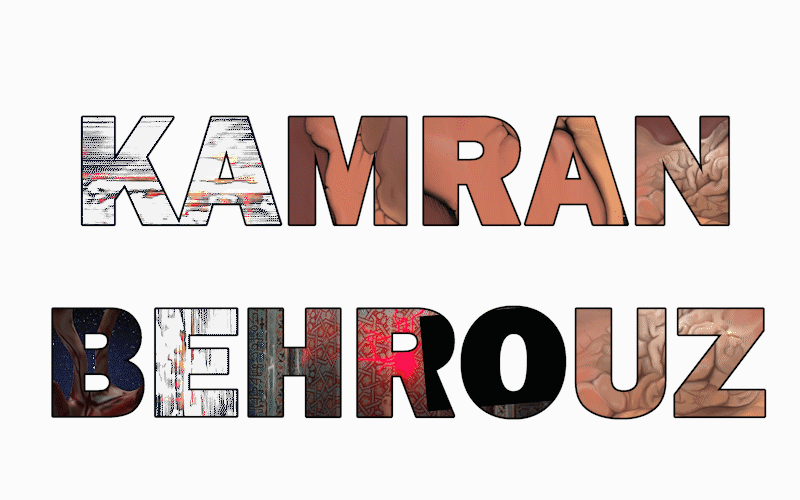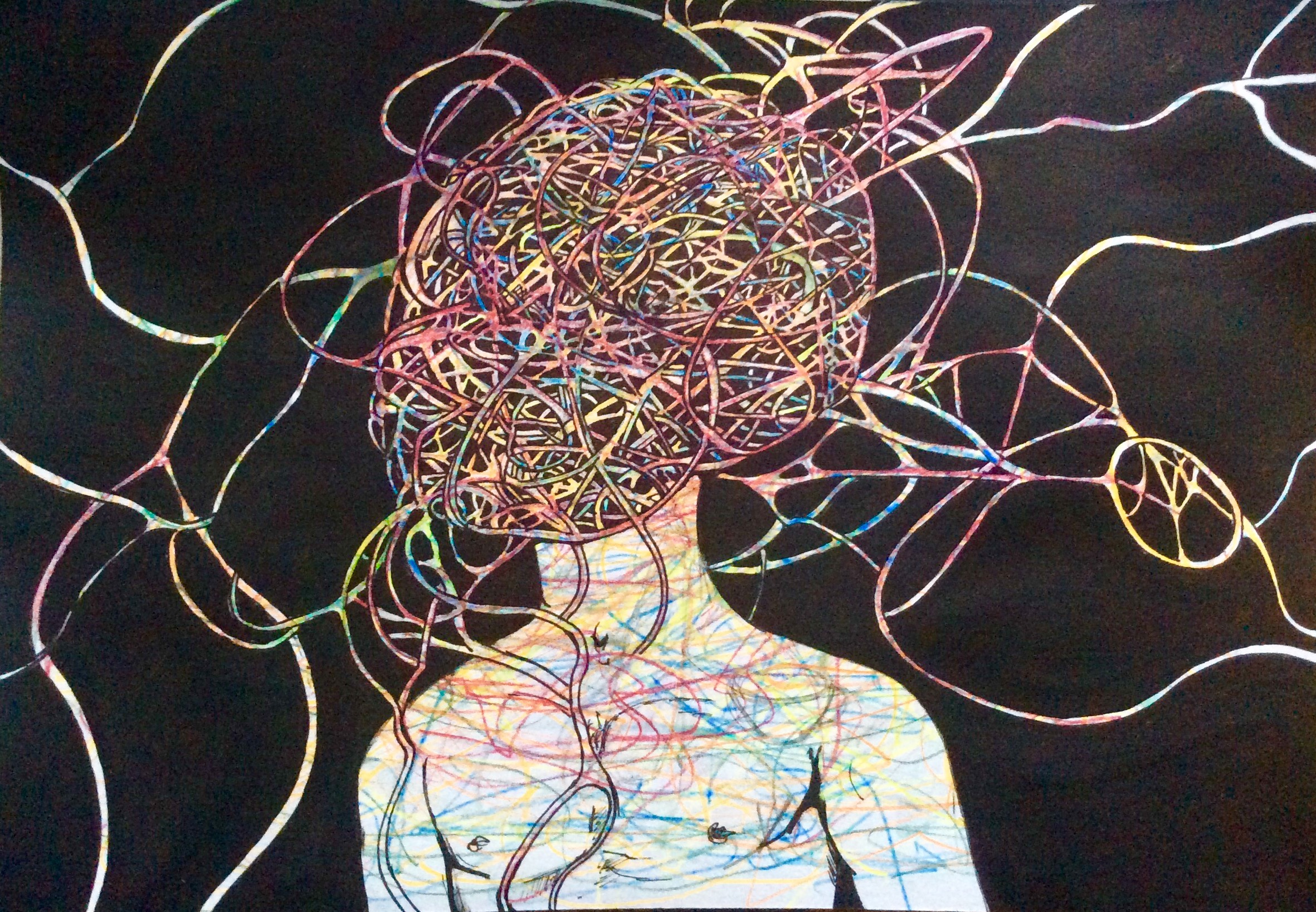365 etudes for celebratig pleasure (2016)
“365 Etudes For Celebrating Pleasure” is the title of a multi-disciplinary project. It is based on one-year participatory action research (March 2016 till March 2017) which was aiming to portray the problematic aspects of the “bare life” in our modern society and trace the footsteps of our digital bodies within the capitalistic market. This project consisted of 365 daily drawings, a site specific installation, several (digital)publications, animations, writing, translations and prints. At the end, the digital publication itself turned into an ongoing process, a digital body without organs.
The location of this one year performance-research was a building, which currently houses many asylum seekers from all around the world. It remains the key site which enables me to analyze and discuss the ‘politics of location’ in my research.
As a nomadic non-binary artist in diaspora, I’m examining my own body in my research and raising questions, such as; How does “the location” affect my very own body/psyche, as a researcher/artist? How did the location itself make me become simultaneously a stranger and an artist during those 365 days?
The publication itself is an answer to an „Absolute frustration“ driven by the fact that having to deal with such realities is painful, and art could be considered a solution. However secretly no one wants art to be true. Moreover, in this process, how does my frustration as an artist commodify itself within the capitalist market?
Being an independent artist means having to deal with numerous boxes and categories created by politics, society, galleries, art institutions, and academia in general which both seize and expand the process of becoming. As Adam Philips puts it more psychoanalytically ‘If we do not feel the frustration we do not discover whether we have the wherewithal to deal with reality“.
So this project in its very basic form is a performative object which reclaims and declares this frustration with practice as a strategy, to try to find a way to endure it and at the same time celebrate it. “How can we celebrate in a world that is filled with destruction and frustration” remains one of the key questions in this work. The medium, humour and satire as coping mechanisms, attempted to confront the oppressive and aggressive micropolitics in our daily life. Here, the comedic works as a strategy to resist the every day crises imposed by politics. The method itself makes the trouble of marginalization and bare life (as a body In diaspora or refugee camp) bearable—and insist that we stay with the trouble of such complex worlding— in order to draw a more complex map of cosmopolitics.
This artistic research, in a sense, is a sociological and philosophical commentary on spending 365 days in a refugee house/center, near the suburbs of Zurich, as a ‘guest artist’ and not a ‘refugee’. It’s a poetic, yet analytical approach, that examines the meaning of ‘otherness’, the meaning of being “a guest in a guesthouse”, as well as challenging the notion of hospitality (as well as the otherness of the ‘host’), in the post-cosmopolitan era.
What kind of implementation and boundaries are involved ? When exactly does the brownness of my own skin juxtapose with the space? How does my body react, based on its own history? And why does the history of my body matter? And last but not least, as Latour famously put it, “Whose cosmos? and Which cosmopolitics?

